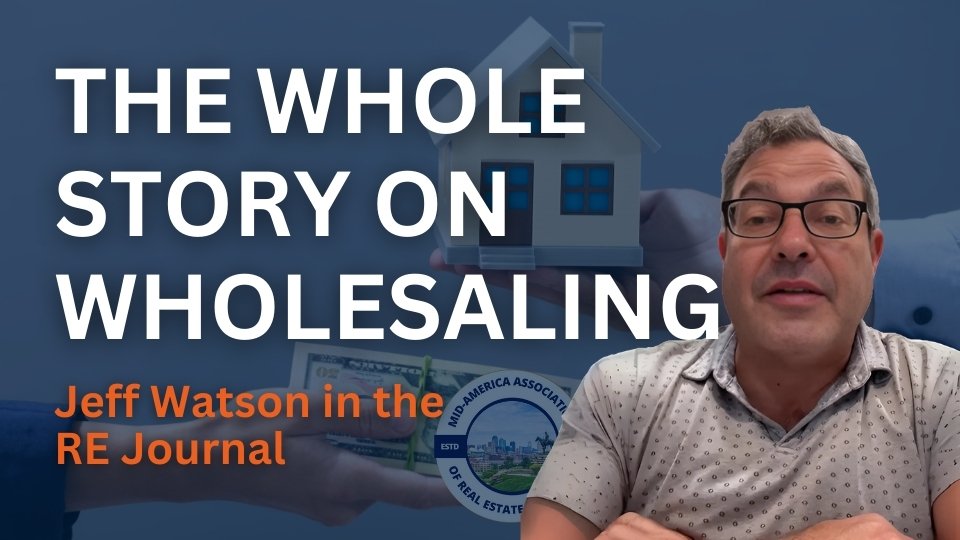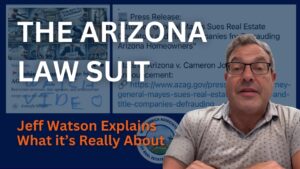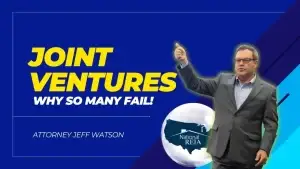
During the National REIA cruise earlier this year, considerable time was spent discussing wholesaling. I had the opportunity to speak to the audience regarding the trends we are seeing in multiple states as to wholesaling from both legislative and regulatory perspectives.
When discussing wholesaling, it’s important to define certain terms.
Most people would probably define wholesaling as the process of putting a property under contract and then assigning that contract to someone else so that the person to whom the contract is assigned is the one who buys the property, and the wholesaler is paid via an assignment fee. This typical definition of wholesaling needs to change!
Illegal in Some States
There are a number of states that have taken the practice I just defined and made it against the law, the most recent two being South Carolina and Oklahoma. They now require that a person own the property before they can begin to advertise it. What stands out about that is that those two states are not known for being highly-regulatory states, but are usually more free-enterprise, freedom-based states. States on the other side of the spectrum are also cracking down, like Illinois, Oregon, Washington and Colorado. There is also some case law in the last year or two from Tennessee that is averse to wholesalers.
What is a "Contract"
You may have noticed that in the definition of wholesaling that I gave, I used the word “contract”. What exactly is a contract? In contract law, a “meeting of the minds” refers to the mutual understanding and agreement between all parties involved in a contract, meaning they all clearly comprehend and accept the terms and conditions of the agreement, which is considered a crucial element for a valid contract to exist; essentially, it signifies that everyone is on the same page about the deal. That’s where things become problematic.
"I Buy Houses Cash!" - Do you really?
Wholesalers market by saying, “I buy houses” or “I close quickly” or “I pay cash”, and then they enter into contracts to buy houses. The problem is that they do none of those things. They don’t buy, they don’t pay cash, and they don’t close at all. They are saying things publicly that are not consistent with their actual business practices.
When a person enters into a contract, they are representing in writing that they have the intent, legal capacity, and financial ability to perform according to the terms of that contract, yet many wholesalers are putting a lot of properties under contract or are “tying them up” when they do not have the intent, capacity or ability to fulfill the terms of the contract. They are putting properties under contract with the sole objective of assigning those contracts to someone else.
Wholesalers might get defensive and say, “But Jeff, the contract says that I can assign it.” Yes, it does, but it doesn’t say that is exactly what you are going to do because if it did say that you were going to assign it, it wouldn’t be a valid contract since you are not the buyer. You are entering into a transaction for which you do not have the intent, capacity or ability to perform.
Ticking Time Bomb . . .
I think it’s only a matter of time before some state agency comes after a large wholesaling group by virtue of saying they are engaged in a fraudulent and deceptive business practice that is harming consumers because they say things in their advertising that they do not later perform. I’ve said it many times in many different forums. If you are a wholesaler, and your business is predominantly or exclusively assignments, then you are engaged in fraudulent business activity, and you need to change your business model.
A Better Wholesaling Model
Now that I have probably made some of you frustrated with me, let me give you some good news about wholesaling. Many leaders in the industry are recognizing the need for a change. New resources are becoming available for wholesalers who desire to actually buy the properties and then resell them. Many wholesalers with whom I have worked have adopted the new model wherein they actually purchase the property in a fully-funded, stand-alone transaction and then immediately (or shortly thereafter) begin remarketing the property and sell it in a separate, fully-funded, stand-alone transaction.
Those who follow this model are doing what I refer to as proper back-to-back closings. They are not seeking to use the end-buyer’s money to pay for their transaction. By the way, those transactions, called “dry closings”, are no longer permitted by every major title insurance carrier or underwriter.
After purchasing a property, wholesalers can expose the property to the market for a longer period while sometimes improving the condition of the property, although they often do absolutely nothing to it. Those who are doing back-to-back closings have discovered that they can do fewer deals while making the same gross revenue. They are working less, have lower costs and fewer things that can go wrong, and they make more money. That’s not a bad way to do real estate!
Stay Educated

John Doe
Lorem ipsum dolor sit amet consectetur adipiscing elit dolor
Visit website:
National REIA has been a leader when it comes to educating investors in the right way to do wholesaling and remains committed to putting accurate information out into the market. They created a video with key regulators from the Ohio Division of Real Estate which has been used to influence the departments of real estate in many other states. Michelle Winberry & Kim Tucker here in Kansas City have shared these with you in the past and they are not just blowing smoke – rules in Ohio are basically the same in Kansas & Missouri currently.
You can find watch it below:
I know that the Ohio Division of Real Estate still requires this video as part of the continuing education and training for all real estate agents in the state, and it has been used to educate other state regulators and investigators as to some of the basics of wholesaling.
Want a more local flavor on this issue? Attorney Julie Anderson has sat down with us to discuss the same subject

Attorney Jeff Watson
Jeffery S. Watson is an attorney who has had an active trial and hearing practice for more than 25 years. As a contingent fee trial lawyer, he has a unique perspective on investing and wealth protection. He has tried over 20 civil jury trials and has handled thousands of contested hearings. Jeff has changed the law in Ohio four times via litigation. Read more of his viewpoints at WatsonInvested.com.







